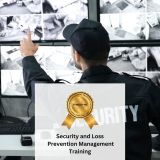Course Objectives:
By the end of this course, participants will be able to:
-
Understand the importance of child safety and recognize common risks and hazards.
-
Implement preventive measures to create safe environments for children.
-
Respond appropriately to emergencies and administer basic first aid.
-
Recognize signs of child abuse or neglect and follow proper reporting procedures.
-
Apply practical skills through scenario-based exercises and simulations.
Course Outline:
Module 1: Introduction to Child Safety
-
Importance of child safety
-
Common risks and hazards at home, school, and outdoors
-
Identifying vulnerable situations
Module 2: Preventive Measures
-
Safety-proofing environments
-
Safe supervision and monitoring techniques
-
Creating safe play and learning spaces
Module 3: Emergency Preparedness and Response
-
Basic first aid for common injuries (choking, burns, cuts, falls)
-
Emergency evacuation procedures
-
Fire safety protocols
Module 4: Child Protection and Awareness
-
Recognizing signs of abuse or neglect
-
Appropriate responses and reporting procedures
-
Effective communication with children
Module 5: Practical Exercises and Demonstrations
-
Scenario-based exercises for safety and emergency response
-
Hands-on practice of first aid techniques
-
Role-playing safe supervision strategies
Certification:
Participants will receive a Certificate of Completion from Inspire Management Training Centre upon successful completion of the course.









